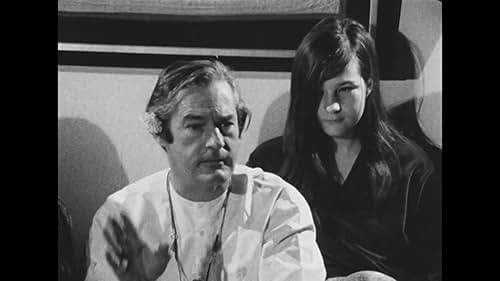HyperNormalisation
- 2016
- 2h 46m
Adam Curtis explains how, at a time of confusing and inexplicable world events, politicians and the people they represent have retreated in to a damaging over-simplified version of what is h... Read allAdam Curtis explains how, at a time of confusing and inexplicable world events, politicians and the people they represent have retreated in to a damaging over-simplified version of what is happening.Adam Curtis explains how, at a time of confusing and inexplicable world events, politicians and the people they represent have retreated in to a damaging over-simplified version of what is happening.
- Nominated for 1 BAFTA Award
- 2 nominations total
- Narrator
- (voice)
- Self - Businessman
- (archive footage)
- Self - Russia Leader
- (archive footage)
- Self - NYC Workers League
- (archive footage)
- Self - Singer
- (archive footage)
- Self - US Secretary of State
- (archive footage)
- Self - President of Syria
- (archive footage)
- Self - Economist
- (archive footage)
- Self - Syria Social Affairs Minister
- (archive footage)
- Self - US Department of Defense
- (archive footage)
- Self - President of the United States
- (archive footage)
- Self - Ronald Reagan's Wife
- (archive footage)
- Self - Ayatollah of Iran
- (archive footage)
- (as Ruhollah Khomeyni)
- Self - US Navy Commander, Chaplain
- (archive footage)
- Self - Psychologist
- (archive footage)
- Self - Electronic Frontier Foundation
- (archive footage)
- Self - Computer Hacker
- (archive footage)
- Self - Ruler of Lybia
- (archive footage)
- (as Muammar Gadaffi)
- Director
- Writer
- All cast & crew
- Production, box office & more at IMDbPro
Storyline
Did you know
- TriviaThe term "hypernormalisation" is taken from Alexei Yurchak's 2006 book Everything was Forever, Until it was No More: The Last Soviet Generation, about the paradoxes of life in the Soviet Union during the 20 years before it collapsed.
- Quotes
Narrator: This was a new world that the old systems of power found it very difficult to deal with. In the wake of the 9/11 attacks, the security agencies secretly collected data from millions of people online. One program was called optic nerve. It took stills from the webcam conversations of millions of people across the world, trying to spot terrorist planning another attack. The program did not discover a single terrorist, but it did discover something else.
- SoundtracksThe Vanishing American family
Written by Scuba Z
Interpreted by Scuba Z
The way he does it here is as compelling and confusing and frustrating and flawed as one would imagine; it really succeeds in making some of his other work look like the tightest factual presentation ever. In almost three hours we explore the story by touching on Gaddafi, Ayatollah Khomeini, the internet, politics, Donald Trump, 1970's Russian sci-fi; the Arab spring; perception management, drugs, Brexit, UFO conspiracies, Twitter, and so on. Often the links are tenuous, but Curtis structures it really cleverly – we are given chunks of facts in a presentation that makes sense, and as a result we accept the links even as they jump countries and decades.
The downside is that many will be turned off because this is polemic incorrectly presented as a documentary. It is not the latter but as the former it works very well. Although it runs to almost 3 hours, I did not find it boring, but rather found it quite compelling in its message and the manner in which it is presented. The strength of the film to me was not that it convinces in every word, or that I agreed with it wholly but rather that it gave me plenty to think about. It helps that I am old enough to remember many of these events – to have seen the shifting political allegiances, to experience the moments, and to feel like they were not organic in all cases.
HyperNormalization is a niche film – it did not even make it not a BBC channel but rather was put on the streaming service directly. It is not as smart as it wants to, but it is engaging and interesting whether you agree with all of its assertions or not.
- bob the moo
- Feb 21, 2017
- How long is HyperNormalisation?Powered by Alexa
Details
- Release date
- Country of origin
- Official sites
- Languages
- Also known as
- Гипернормализация
- Filming locations
- New York City, New York, USA(Establishing shots, aerial views, Underground scenes, Citicorp headquarters building and inside offices, WTC North and South Towers in night aerial view, Trans World Bank headquarters building in day aerial view, Manhattan and the Statue of Liberty in aerial view.)
- Production company
- See more company credits at IMDbPro
- Runtime2 hours 46 minutes
- Color
Contribute to this page









































